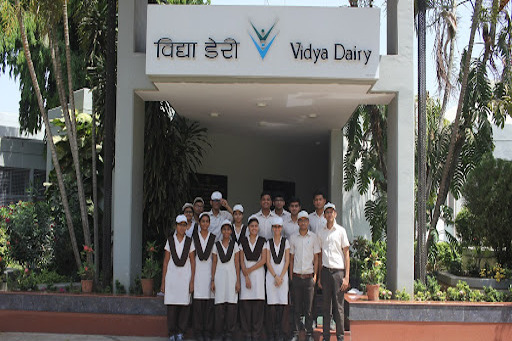The Vidya Dairy model will foster the development of the dairy sector at the academic, research and commercial levels
Milk production in India has jumped from 20.80 million tonnes in 1970 to 187.96 million tonnes in 2018, as per FAO sources (2020). This big increase can be attributed to the efforts and vision of the architect of the dairy industry in India, Verghese Kurien.
The National Accounts Statistics-2019 of the Central Statistical Organisation reveals that the livestock sector accounts for 5.1 per cent of the total gross value addition (GVA). Kurien established the dairy cooperative, Kaira District Cooperative Milk Producers’ Union Ltd (popularly Amul Dairy), in Anand, Gujarat, in 1950, followed by the National Dairy Development Board (NDDB) in 1965, and India’s largest food product marketing organisation, Gujarat Cooperative Milk Marketing Federation (GCMMF) Ltd.
Despite all that, he felt that practising non-dairy executives and researchers require a detailed understanding of the basic theoretical concepts and practical hands-on feel of dairy processing operations in order to make them team members in solving the rising issues and challenges in the dairy sector.
Kurien, the father of the White Revolution in India, believed that only professional management can bring visible socio-economic changes to underserved pockets of rural India.
Training institutes
This inspired him to establish two institutes for training human resources of the country — the Institute of Rural Management Anand (IRMA) in 1979, aimed at creating a new generation of professional managers to serve rural India, and Vidya Dairy in 1994 to provide hands-on training to B.Tech (Dairy Technology) students.
Vidya Dairy, spread across 20 acres, has been helping students of Sheth MC College of Dairy Science, Anand, to become dairy industry professionals. Vidya Dairy, with annual turnover of ₹300 crore, stands on the support Sheth MC College, GCMMF, Amul, andNDDB.
Vidya Dairy follows the principle of ‘Learning-by-Doing’. Here students work with their own hands, acquire skills and gain experience for their professional career. With globalisation and liberalisation, enrichment of skills plays a pivotal role for an individual to be relevant, effective and competitive on the professional front.
Vidya Dairy follows a unique model. It receives milk from Amul Dairy, which is then processed into various milk products and sold under the brand name of ‘Amul-The Taste of India’ through the distribution channel managed by GCMMF. This helps in the financial viability of the dairy plant and achieving its main mission of student training. Its objectives and statutory status are way different from other commercial dairy plants across India.
Vidya Dairy conducts various training programmes for dairy and non-dairy professionals annually. It imparts ‘hands-on’ experience to the students and professionals and inculcates a work culture of quality, productivity, energy conservation and environmental protection for the dairy sector in the country.
Like the Amul model in Anand, each State government must engage with various stakeholders like the Central Government, milk federations, district milk unions, non-government organisations, universities, educational and research centres, etc., for the replication of the Vidya Dairy model to foster the development of the dairy sector at the academic, research and commercial levels.
The Hindu Bussiness Line 26th Nov 2021, Smruti Smita Mohapatra/Ankit Sontakke/JB Prajapati Written by Smruti Smita Mohapatra, Ankit Sontakke and J B Prajapati

